Recently we took a look at the HP EX900 Plus 1TB NVMe SSD, and at the time I mentioned that I had previously used the non-Plus predecessor to that drive. Well today the original EX900 is on the menu. The HP EX900 is an older drive, and it has existed on the market since 2018. At the time it was generally well-received, but today we are going to examine it in the context of a 2022 drive and see how it compares.
HP EX900 1TB NVMe SSD
The HP EX900 1TB comes in a single-sided M.2 2280 (80mm) form factor.

The EX900 is powered by the what masquerades as HP’s 8068 controller, but under the hood is a Silicon Motion SM2263XT. The SM2263XT was notable as one of the first NVMe controllers to support HMB or Host Memory Buffer in an effort to improve the performance of DRAM-less drives like the EX900. Paired with HP’s spin on the SM2263XT we have Micron 64-layer TLC NAND. Unlike with the EX900 Plus, where the NAND was a bit ambiguous between TLC and QLC I can confirm the EX900 is running TLC.

The rear side of the drive has nothing except the same strangely thick label containing the HP logo. Once again as with the EX900 Plus, this is just a label and does not appear to be a heat spreader despite the thickness.
HP EX900 Specs
The HP EX900 line of SSDs is supposedly available between 120GB and 1TB capacities.
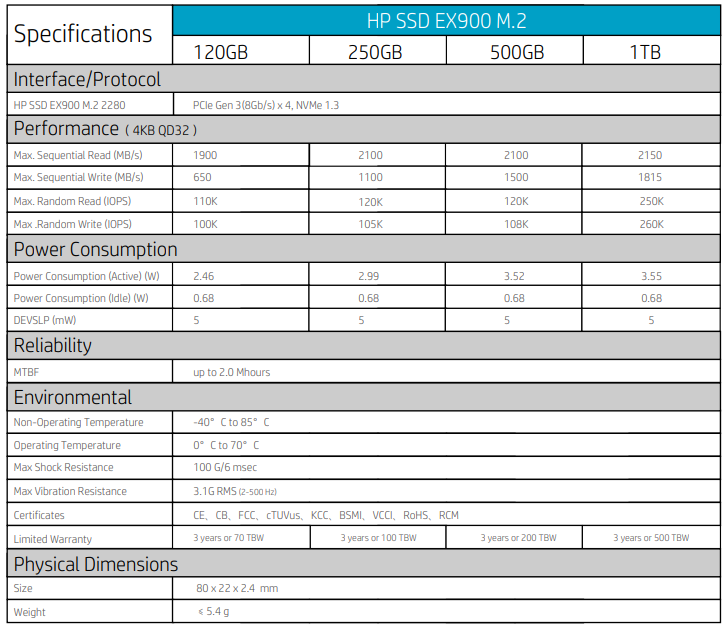
Continuing HP’s tradition of barely marketing or documenting their SSDs is the part where it is incredibly difficult to find the EX900’s spec sheet. It is not located on HP’s site anywhere. If you run a Google search for the EX900, you do not find anything on page 1 either. These drives are OEM’d by Biwin and Biwin maintains a page listing the specs for these drives that I did not manage to locate when I reviewed the EX900 Plus.
Regardless of the difficulty in finding the specs, I am just glad to have them. Our 1TB drive is rated at 2150 MB/s read and 1815 MB/s write, which is a moderate uptick versus the smaller 500GB variant of the drive. In the context of a 2022 drive, these numbers are not particularly impressive and will be competing with value-segment drives.
As for endurance, the EX900 1TB model actually has slightly better endurance than the EX900 Plus. 500TBW is right on the border of what I consider acceptable for a 1TB drive, but in my opinion, it is on the correct side of that border. Since the EX900 is paired with a shorter 3-year warranty, technically the drive is rated for around 0.45 DWPD, but only for the shortened 3 year period. The smaller capacity point EX900 drives do not fare as well though; the 500GB drive has a 0.36 DWPD rating for the 3 year period.
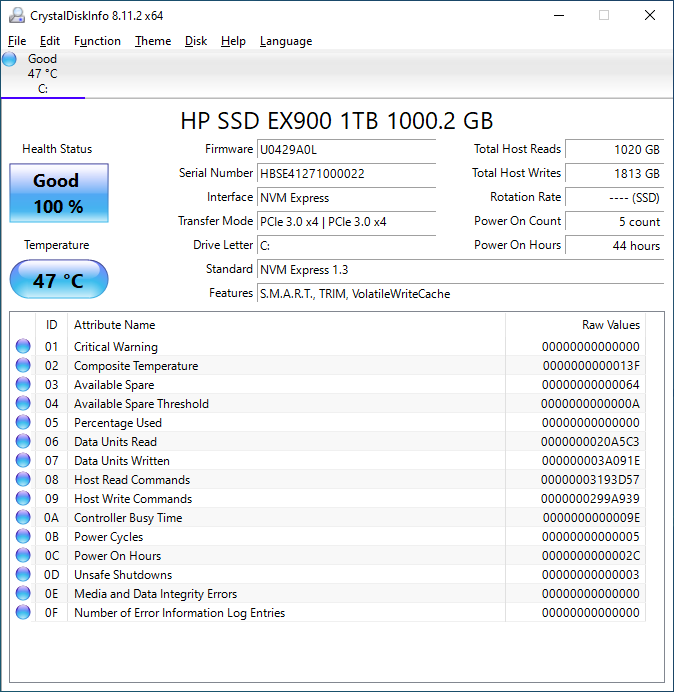
CrystalDiskInfo can give us some basic information about the SSD, and confirms we are operating at PCIe 3.0 x4 speeds using NVMe 1.3.
Test System Configuration
We are using the following configuration for this test:
- Motherboard: ASUS PRIME X570-P
- CPU: AMD Ryzen 9 5900X (12C/24T)
- RAM: 2x 16GB DDR4-3200 UDIMMs
Our testing uses the HP EX900 1TB as the boot drive for the system, installed in the M.2_1 slot on the motherboard. The drive is filled to 85% capacity with data and then some is deleted, leaving around 60% used space on the volume.
Next, we are going to get into our performance testing.

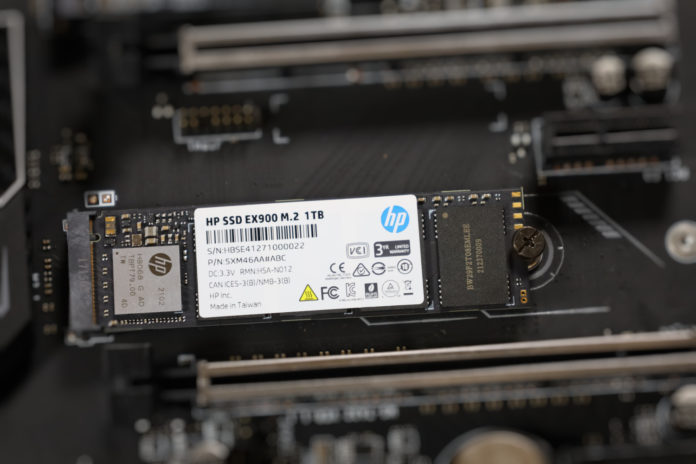
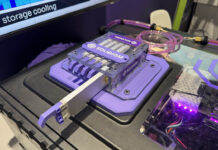
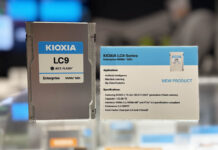
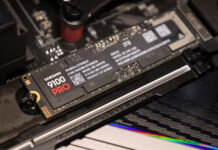
30 MBps continuous write is horrible and even for a 2018 device very disappointing. Maybe heat or firmware was a factor here? 66 degrees C surface temp means the die is at 70+
Back in the 2019-2020 time frame I had two EX920 drives die inside of a NUC when the nuc was generally idle within 3 weeks. Replaced them with a samsung Pro SSD and never had another problem.
Could have just been a fluke, but when I found out these were janky 3rd party drives with HP branding slapped on them and they had no actual support, I swore them off completely.
Replaced them with a samsung Pro SSD and never had another problem.